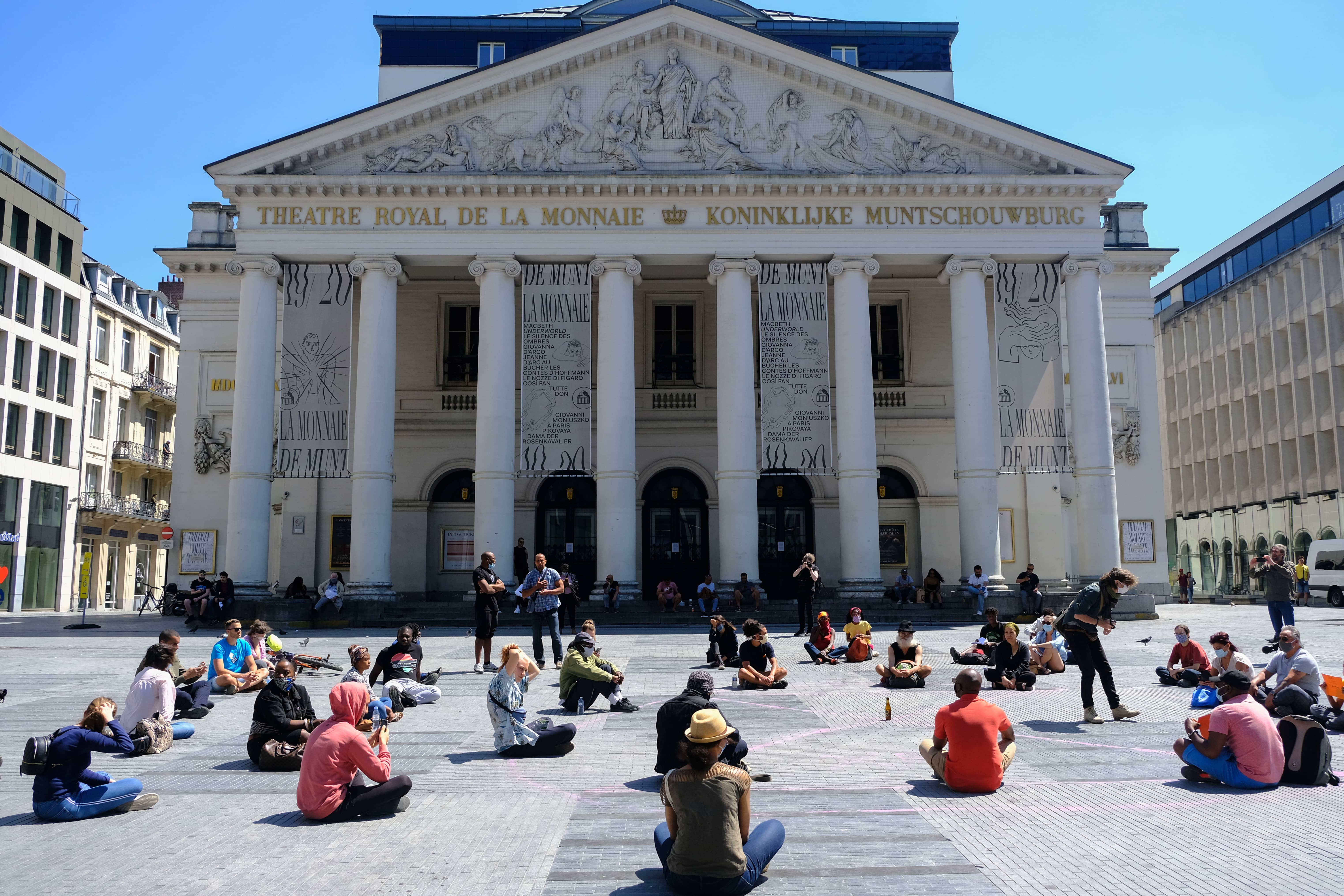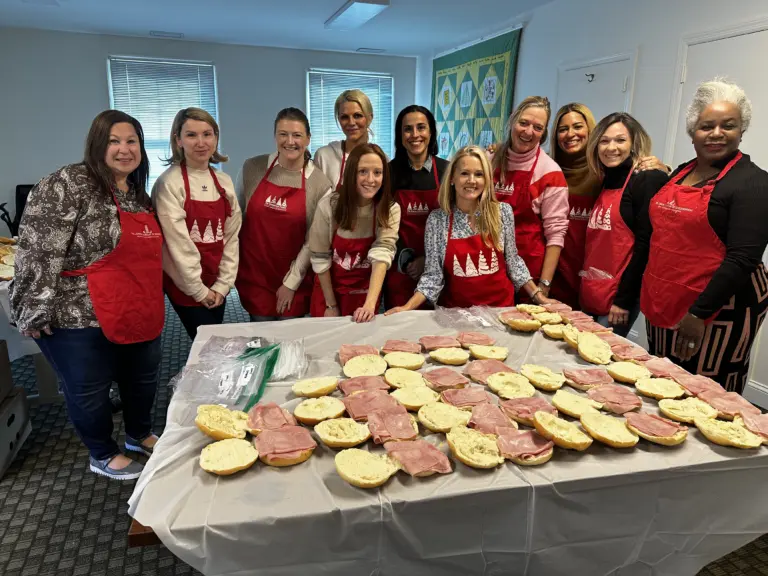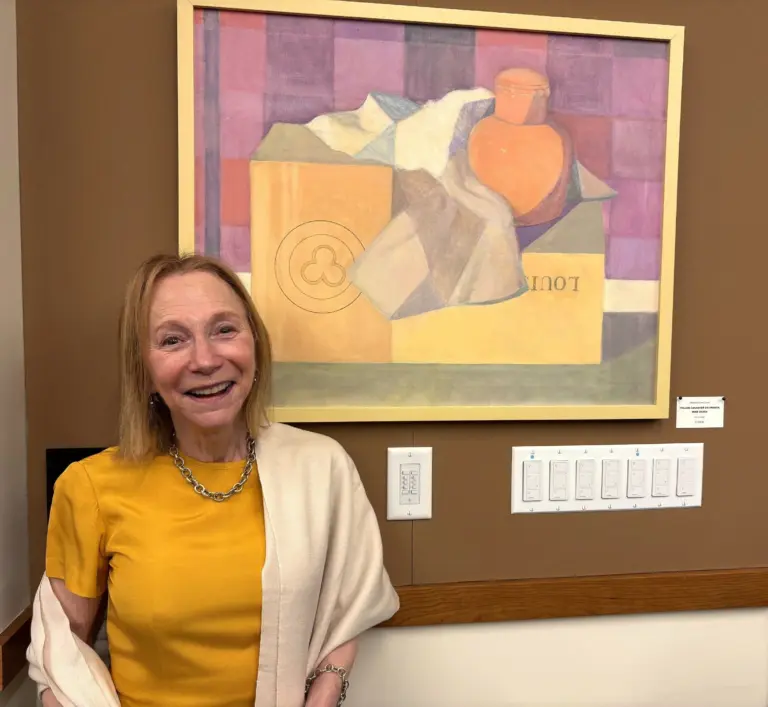

By Marek Zabriskie
Building God’s Beloved Community
Tuesday’s verdict that former police officer Derek Chauvin had been found guilty of killing George Floyd allowed our nation to breathe a sigh of relief. Millions had been holding their breath, expecting that police would once again not be held accountable for killing a Black person.
The verdict in Minneapolis was the right verdict. News spread quickly around the world. It gave us hope. But we have a long way to go. Were it not for the explicit video, the verdict most certainly would have been different. It’s almost always a different verdict for Blacks.
The initial police report whitewashed the entire event. It would never have brought about a verdict like this. The police would have been protected, even after a public lynching.
This was policing gone astray. We have seen it all too often. The Black person and now even the Black teenager is seen as a perpetual threat. They are viewed as less than a white person.
For too long, police held the long blue line. They were never willing to speak out or admit that one of their own had acted reprehensibly. We protected them just like we protect arms and ammunition manufacturers and gun dealers and just as we protected tobacco companies for decades and just as we protected those who lynched Blacks for many decades.
Before becoming ordained as an Episcopal priest, I worked as a newspaper reporter for four years. I spent a year as a police reporter, covering crime in Nashville, Tennessee. One of my first stories was about a police officer who had gone bad.
He switched from police officer to criminal without changing his uniform. He sold drugs and extorted people. He was a bad cop, who marred the badge. He was arrested, tried and jailed.
He did not represent the vast majority of good police officers, who take risks each day for our sake, who uphold the law, protect people and carry out their duty faithfully.
I admire the police. I wouldn’t want them to go away. Most police are honorable and good. But those who are bad must be removed from service. They must be held accountable and sent to jail if they have broken the law. No one is above the law.
Instead of closing the ranks, police in Minnesota courageously spoke out during the George Floyd trial. They testified that the actions that led to Floyd’s death constituted bad, even horrific policing. I cannot imagine someone watching the video and not being filled with remorse, sadness, tears and outrage at what occurred.
The idea of completely defunding the police is wrong. But we have overfunded and undertrained many of our police. We need to get this back in balance, and heaven knows we are grateful for our police just as we are for our military.
We sleep safely at night and carry on safely in the day knowing our streets, schools, homes, families, stores, businesses, hospitals, places of worship, parks, and beaches are safe. I am grateful for the police.
I also know that there have been too many police who have treated people wrongly, which isn’t right. They should not be protected.
We clearly have systemic racism at work in our country. It’s codified in law, supported by gerrymandering, and limited by new voting laws. It’s depicted in the news and advertising and spoken about in code by politicians.
Sign up for “Sacred Ground,” a 10-module Episcopal Church discussion of race and faith, if you wish to learn more about this. Christ Church Greenwich has several Sacred Ground groups. We know that the church is not immune. Sunday morning remains the most segregated hour of the week in America. We can and must do better.
On July 17, 2014, Eric Garner was killed by a police officer who put him in a prohibited chokehold for selling loose cigarettes. When white executives commit white-collar crimes, they may face a penalty, but they often do not go to jail and they are never remotely hurt by police.
They are never put in a prohibited chokehold, despite the fact that their crimes often affect hundreds, thousands, or more. Think about how the billionaire Sackler family profited immensely by fueling the opioid crisis.
No police officer so much as touched them. No one in the Sackler family has gone to jail. But George Floyd died for passing a counterfeit $20 bill and Eric Garner died for selling loose cigarettes. Where is the justice in this? The rich and white experience justice differently.
But Tuesday’s verdict was a step in the right direction. It gave us hope that a white police officer who kept his knee on the neck of a hand-cuffed, subdued, Black man in broad daylight as a crowd gathered for nearly nine minutes – three minutes after he did not have a pulse, would be held accountable. Make no mistake. It was a public lynching, and it was completely wrong.
If there was justice, George Floyd would be alive today. But this verdict was a step in the right direction. It was a step in the direction of building God’s beloved community.
One of the differences in George Floyd’s case is that whites rose up and walked side by side with Blacks. It was different and it was a very long time in coming.
In God’s beloved community, every child, every youth and every adult is cherished. Every person, whether gay or straight, young or old, abled or disabled, Christian, Jew, Muslim, Hindu or atheist, Asian, Black, Hispanic, or white, male or female or transgendered is shown dignity and respect. This is what we are striving for and called to bring about.
God’s beloved community calls for bringing about the Kingdom of God here on earth. That is a mighty tall order, but it is the work that we are all called to do.
In the New Testament there are two forms of eschatology at work. Eschatology is a theological word that is the part of theology that deals with death, judgment and the final destiny of the soul and humankind.
One form of eschatology is unrealized. In these Bible passages Jesus and others speak about a Kingdom of God in the future where justice and equality for all will be provided. We may not find it here. In fact, we never will. But just wait for heaven.
If you were born in poverty, if you were sexually assaulted, if you were physically abused, enslaved, brutally battered or treated with countless indignities, you will find a different world in paradise. Just keep your eyes fixed on paradise.
But there is another form of eschatology that is more dominant and prominent. It is called a realized eschatology. These Bible passages note that God’s plan for humanity is not some disembodied, future hope of justice and equality for others when this life is over.
Rather, God’s dream for this world and for all human beings is here and now. The Kingdom of God is among us, and we must all work to build God’s beloved community here and now, for one and all.
God asks, invites, calls and demands each of us to treat all humans with respect and dignity. Tuesday’s verdict was one step forward, a good step, the right step. But there are many steps to go before we experience the Kingdom of God here and now.




